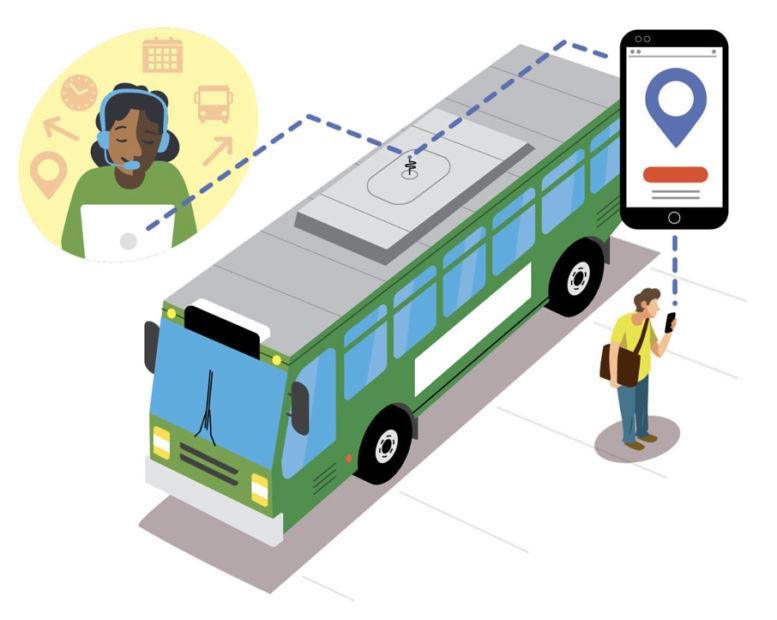Optibus acquires Trillium to expand in North America
- April 26, 2022
- Steve Rogerson

Israeli AI company Optibus has acquired Trillium, an Oregon-based SaaS provider helping transit operators and agencies keep riders informed.
Trillium will become Optibus’ global centre for data excellence and operate as a subsidiary, integrating expertise in public transportation data feeds and a team of twenty-five data experts into Optibus., This should strengthen and diversify Optibus’ mass transportation optimisation capabilities and reinforce the company’s global expansion strategy.
Mobile apps play a key role in transit passenger journeys. Every day, billions of people use their phones to discover transit options, plan journeys, and access real-time ETAs and service changes. When data are missing or inaccurate, riders go uninformed, directly impacting ridership levels and passenger experience. Uninformed riders perceive unexpected wait times as three to five times as burdensome as in-vehicle time, reducing the usefulness and appeal of public transportation.
Trillium’s championship of public transportation data, including its GTFS general transit feed specification, improves passenger communications, allowing the industry to publish schedule and real-time service data in a format consumable by apps including Google Maps and Apple Maps.
In its fourteen years of operation, Trillium has helped more than 350 US transit agencies and operators, including the Port Authority of New York & New Jersey, Caltrain, Anaheim Resort Transportation, San Francisco Bay Ferry, Sonoma County Transit, DC Streetcar, and the departments of transportation (DoTs) in Massachusetts, Oregon, Colorado and other US states, to improve passenger experiences and communications.
“This new partnership between Trillium and Optibus, two innovative and customer-focused technology companies, is exciting for the transit industry,” said Robert Betts, director of operations and planning at Marin Transit. “As a current Optibus client and long-time Trillium client, I’m convinced this combination will allow Marin Transit and other Optibus scheduling clients a more sophisticated and robust set of tools to manage and publish GTFS data for riders.”
The acquisition diversifies Optibus’ service offering to include Trillium’s data-centric products and services, including GTFS Manager, transit alerts, interactive maps and transit web sites. Optibus will begin to take a consultative approach to problems that cannot be solved by software alone, but also need data aggregation and analysis.
“Our acquisition of Trillium accelerates Optibus towards its vision of an all-encompassing, end-to-end software platform for daily transportation operations,” said Amos Haggiag, CEO of Optibus. “We are committed to realising that vision through the development of cutting-edge technology alongside organic business developments and corporate development initiatives that enable us to work with industry leaders like Trillium.”
Aaron Antrim, CEO of Trillium, added: “Open data systems are what drives public transport forward. By joining Optibus, Trillium will integrate its data-centric offerings into an end-to-end software platform for public transportation operations, enabling us to continue offering excellent support and consultancy to transit agencies and state and federal DoT customers in North America.”
Optibus is an end-to-end, cloud-native option for transportation planning, scheduling, rostering and operations, powered by AI and optimisation algorithms. Transportation agencies and operators worldwide use Optibus to increase efficiency and service quality, promote transportation equity, reduce emissions and costs, and modernise operations.
Founded in 2007, Trillium built the first SaaS product for GTFS management, and nurtured GTFS as a global data standard. Today, Trillium’s products and services, including GTFS Manager, rider-focused web sites, service alerts, interactive maps and consultations, are used by more than 350 transit operators and state and federal agencies across the USA and Canada to manage their data and communicate service information to riders.




